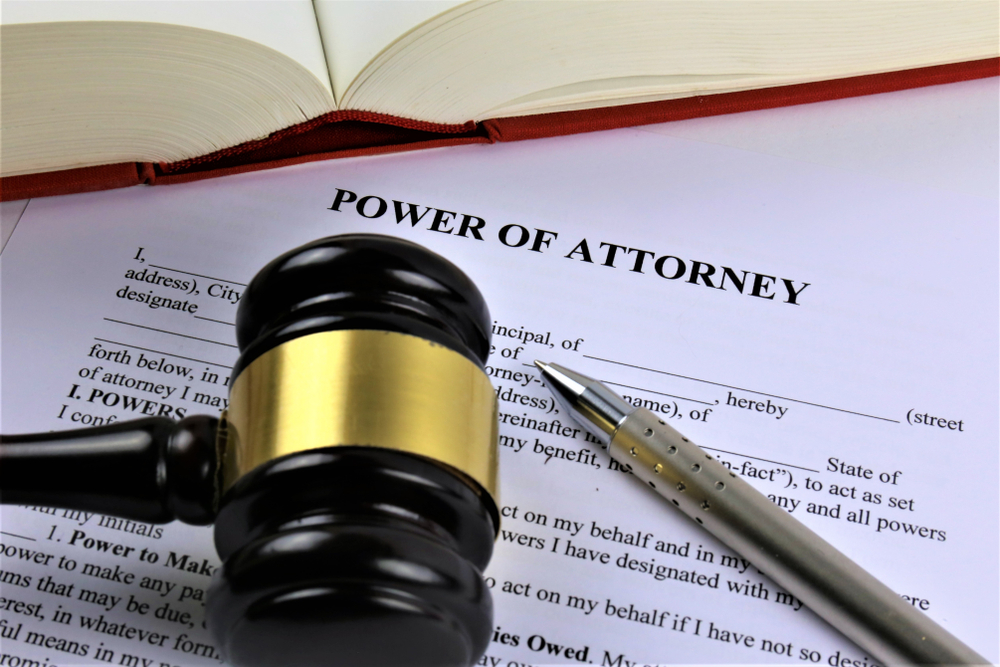Can A Power Of Attorney Transfer Money To Themselves?
Can a power of attorney transfer money to themselves? A power of attorney (POA) is a legal document that gives someone else the authority to make financial and other decisions on your behalf.
Author:Paolo ReynaReviewer:James PierceFeb 07, 2023170 Shares2.6K Views

Can a power of attorney transfer money to themselves? A power of attorney (POA) is a legal document that gives someone else the authority to make financial and other decisions on your behalf.
This person, known as an attorney-in-fact or agent, can be trusted to make decisions in your best interest and to manage your financial affairs as directed by you. But can a power of attorney transfer money to themselves? This is a common question, and the answer is complex and depends on various factors.
In this article, we will examine the different types of power of attorney, the powers granted to an attorney-in-fact, and the ethical and legal considerations surrounding the transfer of money.
Types Of Power Of Attorney
The first step in understanding whether a power of attorney can transfer money to themselves is to understand the different types of power of attorney. There are two main types: general power of attorney and durable power of attorney.
A general power of attorney gives the attorney-in-fact broad authority to handle financial and other matters on your behalf, but it terminates if you become incapacitated.
A durable power of attorney, on the other hand, remains in effect even if you become incapacitated and continues until your death or until it is revoked.
Powers Granted To The Attorney-in-Fact
The powers granted to an attorney-in-fact under a power of attorney can vary widely depending on the specific document and the state laws governing the document.
In general, however, an attorney-in-fact can be authorized to handle a wide range of financial and other matters on your behalf, including:
- Paying bills.
- Managing investments.
- Buying and selling property.
- Signing legal documents.
The specific powers granted to the attorney-in-fact should be spelled out in the power of attorney document, and it is important to understand these powers before granting someone POA.
Ethical Considerations
Even if a power of attorney gives the attorney-in-fact the authority to transfer money on your behalf, it is important to consider the ethical considerations surrounding this action.
Attorneys-in-fact are held to a high standard of ethics and must act in their best interest at all times. Transferring money to themselves would be a clear violation of this duty and could result in legal consequences.
Legal Considerations
In addition to ethical considerations, there are also important legal considerations to keep in mind.
If a power of attorney transfers money to themselves for their own personal benefit, this could be considered a breach of fiduciary duty and could result in criminal charges.
Additionally, the transfer of money could be subject to challenge in court, and the attorney-in-fact could be held accountable for any damages resulting from the transfer.
Essential Things To Keep In Mind
There are a few additional things to keep in mind when considering whether a power of attorney can transfer money to themselves.
Potential Consequences For The Attorney-in-Fact
If a power of attorney transfers money to themselves, they could face serious consequences, including:
- Criminal charges:If the transfer of money is found to be a breach of fiduciary duty, the attorney-in-fact could face criminal charges, including embezzlement or fraud.
- Civil lawsuits: If the transfer of money causes harm to the person granting the POA, they could bring a civil lawsuit against the attorney-in-fact to recover damages.
- Loss of credibility:Even if the transfer of money does not result in criminal charges or civil lawsuits, it could still harm the attorney-in-fact's reputation and credibility, making it more difficult for them to perform their duties in the future.
Preventing Unauthorized Transfers
If you are concerned about the possibility of a power of attorney transferring money to themselves, there are steps you can take to minimize the risk. Some options include:
- Choosing a trustworthy and reliable attorney-in-fact: It is important to choose an attorney-in-fact who is trustworthy and reliable, and who has a track record of making decisions in your best interest.
- Limiting the powers granted:You can limit the powers granted to the attorney-in-fact by specifying certain restrictions in the POA document. For example, you could specify that the attorney-in-fact is not authorized to transfer money to themselves or to use the funds for their own benefit.
- Monitoring the actions of the attorney-in-fact:Regularly monitoring the actions of the attorney-in-fact can help you catch any unauthorized transfers early on, and take appropriate action if necessary.
How To Handle A Power Of Attorney Transferring Money To Themselves?
If a power of attorney is transferring money to themselves, it's important to take the following steps:
- Review the power of attorney document:Review the power of attorney document to determine if it allows the power of attorney to transfer money to themselves. If it doesn't, this could be a violation of the terms of the document.
- Consult with a lawyer:If you suspect that a power of attorney is transferring money to them, it's a good idea to consult with a lawyer who specializes in estate or elder law. They can help you understand your legal options and determine the best course of action.
- Document the transactions:If you have evidence that the power of attorney is transferring money to themselves, make sure to document the transactions and keep records of all correspondence. This can be helpful if you need to take legal action.
- Report the behavior:If you believe that the power of attorney is engaging in illegal behavior, such as fraud or theft, you should report it to the appropriate authorities, such as the police or the state attorney general's office.
- Revoke the power of attorney:If necessary, you may need to revoke the power of attorney to prevent further transfers. This should only be done after consulting with a lawyer and following the appropriate legal procedures.
People Also Ask
Can A Power Of Attorney Legally Transfer Money To Themselves?
If the POA specifically grants the authority to transfer money to the agent or attorney-in-fact, then it is legal. However, if the POA does not grant such authority, or if it prohibits the agent from transferring money to themselves, then it would be illegal for the agent to do so.
Is It Legal For A Power Of Attorney To Transfer Money To Themselves?
Whether it's legal for a power of attorney to transfer money to themselves depends on the terms of the power of attorney document and state laws. Some states may consider it a form of fraud or theft, while others may allow it under certain circumstances.
Can A Power Of Attorney Use The Money They Are Managing For Their Own Benefit?
Whether a power of attorney can use the money they are managing for their own benefit depends on the terms of the power of attorney document and state laws. A power of attorney should only act in the best interests of the principal and should not use their authority for personal gain.
Conclusion
Can a power of attorney transfer money to themselves? A power of attorney can give the attorney-in-fact broad authority to handle financial and other matters on your behalf, it is not appropriate for the attorney-in-fact to transfer money to themselves.
Attorneys-in-fact must act in their best interest at all times, and transferring money to themselves would be a clear violation of this duty.
If you are considering granting someone POA, it is important to understand the powers granted, the ethical and legal considerations surrounding the transfer of money, and the responsibilities of the attorney-in-fact.

Paolo Reyna
Author

James Pierce
Reviewer
Latest Articles
Popular Articles
